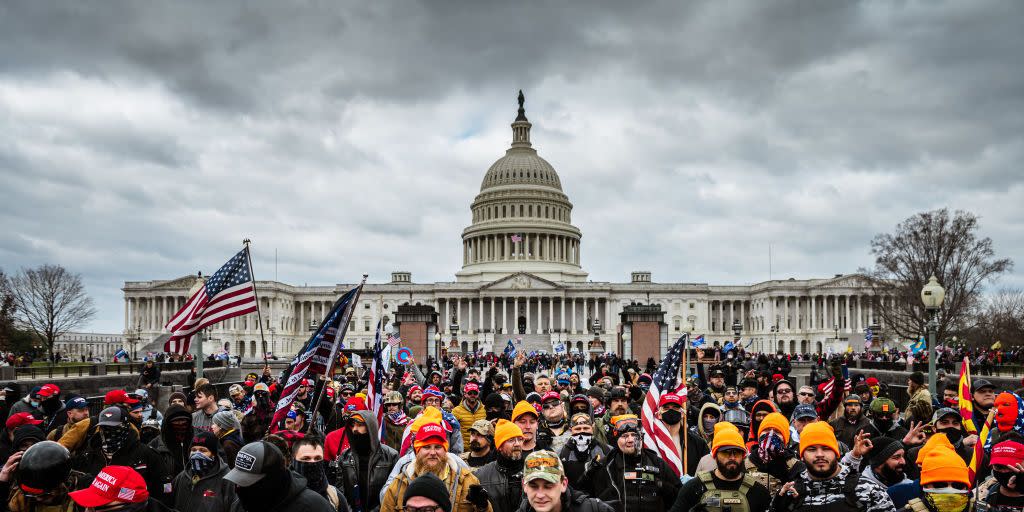Republicans Killed the Capitol Insurrection Commission Because of Politics

- Oops!Something went wrong.Please try again later.
- Oops!Something went wrong.Please try again later.
Senate Republicans on Friday blocked the creation of a bipartisan commission to investigate January 6th’s deadly insurrection on the Capitol in which a mob of Trump supporters attempted to overthrow democracy and prevent the certification of the 2020 presidential election. Five people were killed during the insurrection, including a Capitol police officer, and nearly 200 were injured.
Six Republicans voted in favor of the bill. They include Sen. Mitt Romney of Utah, Sen. Lisa Murkowski of Alaska, Sen. Ben Sasse of Nebraska, Sen. Susan Collins of Maine, Sen. Rob Portman of Ohio, and Sen. Bill Cassidy of Louisiana. Sen. Pat Toomey of Pennsylvania said he would have supported the bill, but he wasn’t present for the vote. Even if he had been, it wouldn’t have mattered. The final tally, 54 to 35, fell six short of the 60 necessary votes to overcome a Republican filibuster.
It has since been widely reported that the main reason Republicans opposed the creation of the commission is because they feared it would hurt their chances in the upcoming midterm elections. And by widely reported, I mean Sen. John Thune of South Dakota admitted as much to CNN when he said, "I want our midterm message to be on the kinds of things that the American people are dealing with: That's jobs and wages and the economy and national security, safe streets and strong borders -- not relitigating the 2020 elections.”
Thune continued, “A lot of our members, and I think this is true of a lot of House Republicans, want to be moving forward and not looking backward. Anything that gets us rehashing the 2020 elections I think is a day lost on being able to draw a contrast between us and the Democrats' very radical left-wing agenda."
Multiple Republicans who voted no admitted that without the work of an independent commission, important questions would go unanswered. But they argued that an independent commission’s efforts would be duplicative of the current Senate committee investigations. Unfortunately though, neither the Rules nor the Homeland Security senate committees are looking into events leading up to the insurrection. Instead, they are focused on day-of security breakdowns.That information will not help identify and eliminate a threat before it happens.
The failure to form a bipartisan commission after—of all things— a terrorist attack, marks a new low in the seemingly bottomless well of divisiveness that is the United States senate. For the past century and despite deep partisan divisions, American politicians on multiple occasions have managed to come together in the wake of a devastating tragedy to determine what went wrong.
The most famous example of this is the 9/11 commission, which the Jan. 6 commission was modeled after, but there have been plenty others. In 1963, President Lyndon B. Johnson created the Warren Commission to investigate the assasination of former President Kennedy. There was also the World War II-era Roberts Commission that investigated the attack on Pearl Harbor.
By failing to follow in the footsteps of these other bi-partisan commissions (some of which were related to foreign terrorist attacks, some domestic like the Jan. 6 insurrection), today’s Republican senators have put party above politics at a level so high, it should terrify us all. The worst is certainly yet to come.
You Might Also Like

